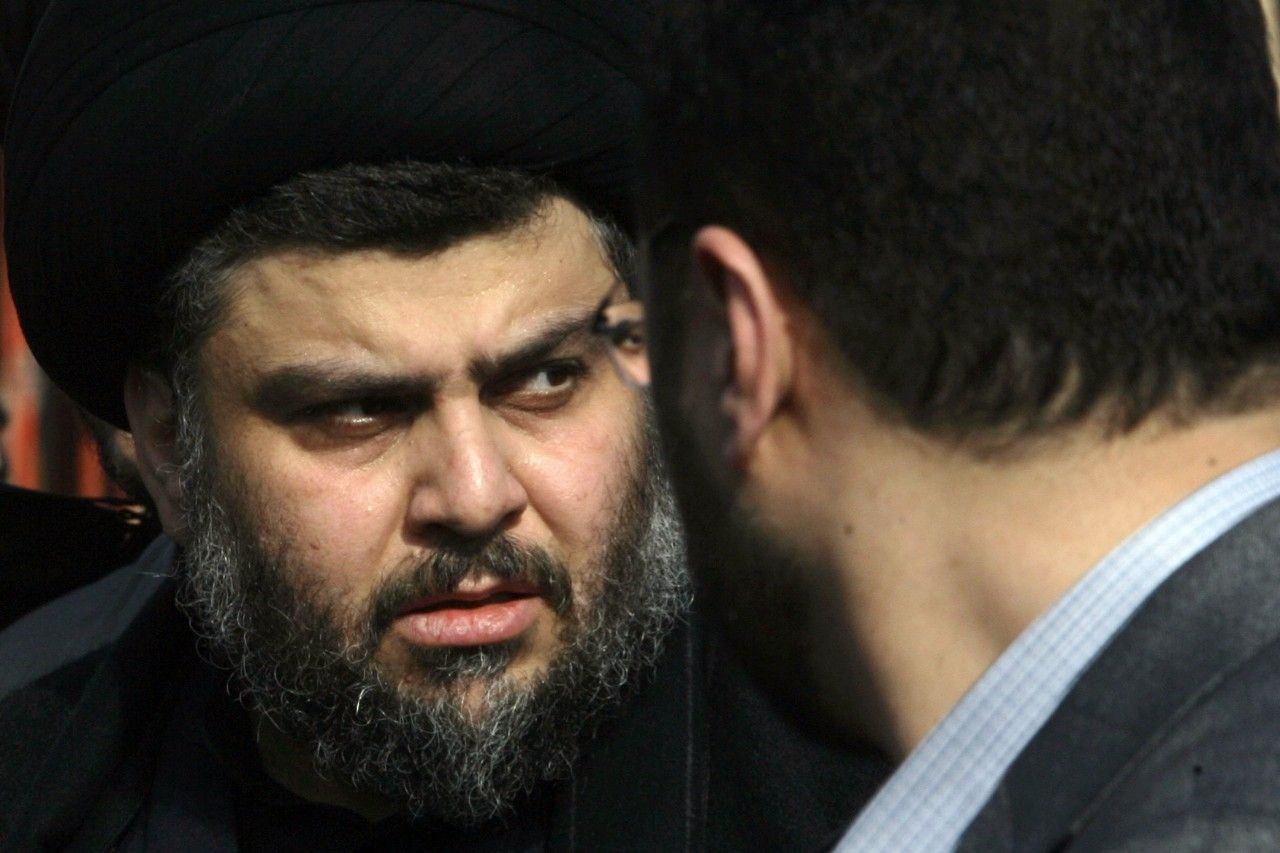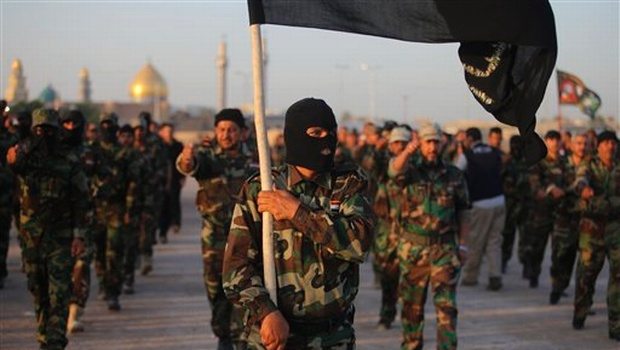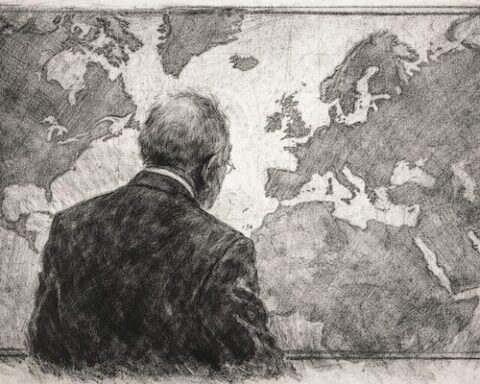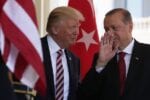Muqtada al Sadr calls for attacks against US Forces in Iraq
IRAQ- (LC) In the two years since the United States officially waged its campaign against ISIS, there have been no known attacks launched by Shiite militias. With the announcement that the US is deploying additional troops to combat the Islamic State threat in Iraq and the overall Levant region, Shiite cleric Muqtada al Sadr has vowed to change that.
We will target the US forces anywhere they are in Iraq.
We are not only keen on targeting them, but thirsty for their blood.
Intent on strengthening his power base, al Sadr has continued to incite his loyal followers.
Just days after the US announcement to deploy more troops to Iraq, the so-called Peace Brigade issued a statement: “We will target the US forces anywhere they are in Iraq. We are not only keen on targeting them, but thirsty for their blood.” The Peace Brigade is the militant faction of the Shia Sadrist movement in Iraq, and the well-known militia of al Sadr.
al Sadr’s ominous threats are not without precedent. His movement threatened the US and its interests in the region earlier this year, stating that US personnel should be targeted by affiliated armed groups. al Sadr’s challenge cannot be dismissed as populist cheering. A premier enemy of US occupation, al Sadr’s troops waged fierce battles against US forces in 2003 in the city of Najaf, in southern Iraq.
This year al Sadr has, time and again, proven that the so-called Green Zone, which is supposed to be a secured area, is only as secure as the cleric and his followers want it to be. His people have relentlessly protested just outside of the area, and at their leisure, invaded its space with little to no repercussions from the Baghdad regime. No doubt, Baghdad is well aware that al Sadr’s bite would be much worse than his bark, if challenged.
In early July, the cleric made explicitly clear his interest in targeting the US Embassy in Iraq. Without fear of repercussion al Sadr pronounced, “The [US] embassy has harassed us before and now it is our time to harass it.”

The Peace Brigade is part of a greater organization called the PMU, or Popular Mobilization Units, which in turn has close links to Iran, and officially considers all US troops to be occupying forces in the country. The goals of the Peace Brigade stand in stark contrast to that of the Strategic Framework Agreement signed between the US and Iraq in 2011. The stipulations of this agreement are intricately linked to the geopolitical context within which it arose. Just as President George W. Bush’s second term in office was winding down, the UN Security Council resolution permitting US Operations in Iraq—as part of a Multi National Force in adherence to international humanitarian law—had expired. It was crucial that legal grounds for the continued US military presence and operations in Iraq be secured.
The SFA fills a key void in that its distinguishing characteristic lies in emphasis on Iraqi sovereignty and US accountability. In plain terms, what distinguishes this agreement from other such “friendship” contracts between the US and other nations is its focus on military strategy and cooperation between the two nations—an issue prioritized over mere cultural guarantees.
In Section III, Defense and Security Cooperation, the agreement reads:
“In order to strengthen security and stability in Iraq, and thereby contribute to international peace and stability, and to enhance the ability of the Republic of Iraq to deter all threats against its sovereignty, security, and territorial integrity, the Parties shall continue to foster close cooperation concerning defense and security arrangements without prejudice to Iraqi sovereignty over its land, sea, and air territory.”
This provides perhaps the most visceral instance from which to see that, from the outset, the intentions of the US-Iraq agreement were incompatible with the goals of al Sadr. Such a reality places the Iraqi government—within which al Sadr has a political contingent—in an awkward position with the US, loyal ally.
While the position of the Iraqi government is very clear, to cooperate with the United States and accept its support in their fight against terrorism, it would be foolish to think that repercussions—coming from the al Sadr camp—have been spared.
On July 15 in Baghdad’s Tahrir Square, shouts of “America leave!” could be discerned from crowds of Sadr supporters. The group also called for a shutdown of the US Embassy and an expulsion of any person working under the US Government. al Sadr himself took this one step further, accusing Iraqis working with US institutions and seeking asylum in the US of “having no honor.”

Taken at face value, al Sadr’s statements are not mere paper tigers. But they are, to an extent, exercises in rhetoric, the merits of which remain to be seen in the coming weeks. al Sadr’s loyalists likely adhere to the order of Iraqi troops, and, as of yet, al Sadr’s opposition has taken the form of words—not actions.
To those who have closely followed the unfolding situation, threats against the US Embassy by supporters of the Shiite cleric are nothing out of the ordinary. Even the heavily fortified Green Zone—home to Assassins’ Gate, the Monument to the Unknown Soldier, and the secured location of the trial of Saddam Hussein—proved no match for the fiery rhetoric of al Sadr. In March, he declared, “All embassies in the Green Zone in Baghdad will be safe from any attack, should Iraqi [protesters] wish to enter it, except for the US and British embassies.”
al Sadr is not alone in his waging of verbal war against US troops. The PMU has not only expressed verbal aggression toward the US, but in recent months members of its faction group—the Hezbollah Brigades—published a joint press release with the Badr Organization and League of the Righteous, warning of hostile action, and that a return of US troops would be seen as “a renewed occupation of Iraq by the United States.”
In his time, al Sadr has worn many hats. A once-foremost enemy of the United States. A cleric. A community leader. An Iranian proxy. An Iraqi patriot. A political provocateur. Today, his motives are clear, his intentions resolute. Whether his straw man rhetoric materializes to tangible action, only time will tell.
John Sjoholm, Lima Charlie News
John Sjoholm is Lima Charlie’s Middle East Bureau Chief, Managing Editor, and founder of the consulting firm Erudite Group. A seasoned expert on Middle East and North Africa matters, he has a background in security contracting and has served as a geopolitical advisor to regional leaders. He was educated in religion and languages in Sana’a, Yemen, and Cairo, Egypt, and has lived in the region since 2005, contributing to numerous Western-supported stabilisation projects. He currently resides in Jordan. Follow John on Twitter @JohnSjoholmLC
Lima Charlie World provides global news, featuring insight & analysis by military veterans, intelligence professionals and foreign policy experts Worldwide.
For up-to-date news from the Middle East, please follow us on twitter at @LimaCharlieNews and @JohnSjoholmLC
[Image: Alaa Al-Marjani/Reuters]

![Image US Battle Against ISIS Incites Old Foe [Lima Charlie News][Photo: Alaa Al-Marjani/Reuters]](https://limacharlienews.com/wp-content/uploads/2016/07/al-Sadr-JUL29.jpg)

![Iranian crackdown on MEK shows the activist group has popular support [Lima Charlie News]](https://limacharlienews.com/wp-content/uploads/2019/05/Iran-MEK-Lima-Charlie-001-480x384.png)
![The Mind of Bolton - AUMF and the New Iran War [Lima Charlie News]](https://limacharlienews.com/wp-content/uploads/2019/05/Inside-the-mind-of-Bolton-Lima-Charlie-News-main-01-480x384.png)






![Iranian crackdown on MEK shows the activist group has popular support [Lima Charlie News]](https://limacharlienews.com/wp-content/uploads/2019/05/Iran-MEK-Lima-Charlie-001-150x100.png)